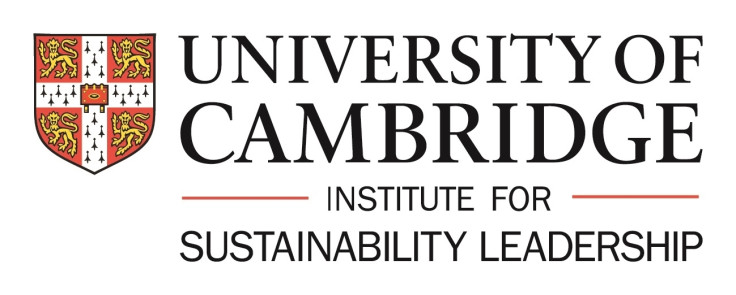Why it's time for banks to take a fresh look at fintechs
Andrew Voysey is Director of Sustainable Finance, University of Cambridge Institute for Sustainability Leadership.

Whether it's banking, stock trading or insurance, fintechs have been challenging traditional financial service business models and redirecting capital flows for some years now.
Where there are success stories, they have often hinged on developing new ways to make consumer choices simpler, cheaper and more transparent, without sacrificing quality or security.
The response from banks has been somewhat defensive: many have found ways to stay close to start-ups so that they can move quickly to convert threats to their own business model into new opportunities to offer value to customers.
But now there are signs that fintech is shifting to focus on a new frontier: helping to solve critical global social and environmental challenges in the real economy.
Through our work with a new Fintech Taskforce, which we at the University of Cambridge Institute for Sustainability Leadership (CISL) convene, we believe this opens up a whole new landscape of opportunity for banks to join forces with start-ups and their own large corporate clients. It will require a shift of mind-set, among other things, or the opportunity will be missed.
The context is extraordinary. It is estimated that $5trn to 7trn of investment will be needed globally, per year, to achieve the Sustainable Development Goals agreed by the world's governments in 2015. Within the energy sector alone – which must transition to an affordable and clean footing globally – the investment needed amounts to well over $10trn over that period.
We do not need to find new money to meet these needs. The trillions already exist. Rather, we need to redirect existing capital flows. These "green" or "sustainable" capital flows will be guided by better information accessed through new, innovative platforms.
Large corporations are increasingly focused on aligning their business models with helping to address these societal priorities. They expect their banking service providers to help. And they are now starting to understand the opportunity of engaging with fintech to catalyse new ways of achieving their sustainability targets.
So, the question for corporates and banks vying for a competitive edge over their peers in this space is how to foster an environment that systematically supports fintech applications that help solve critical global social and environmental challenges in the real economy to emerge.
This is precisely the question that a group of 16 multinational companies, financial institutions and fintech start-ups sought to answer through the Fintech Taskforce convened by CISL alongside a leadership a group of banks called the Banking Environment Initiative.
We found that meaningful opportunities are being overlooked because multi-sector innovation does not happen easily on its own, despite this being a key mechanism to connect innovators to those that have the commercial motivation, and the ability, to implement solutions at scale.
Front and centre of the Taskforce's recommendations, published today, is the suggestion to create "Fintech for Sustainability" catalysts to trigger targeted, collaborative multi-sector innovation.
The Taskforce looked at a range of specific cases to inform their conclusions. One example focuses on companies that aspire to promote responsible production practices throughout their complex, global supply chains, who find that tracing goods and information about their provenance from end to end is a wicked challenge.
The Taskforce found that identifier and blockchain technologies could be combined to provide incorruptible provenance data quickly and cheaply to buyers. Furthermore, such systems could also interface with banks' trade finance operations in such a way that information about the sustainability of production processes could be exchanged for preferential financing terms.
Once this link is made in practice, corporates struggling to achieve change across their sprawling supply chains suddenly have a powerful new ally in their banking partners.
More broadly, companies are facing rapidly rising expectations as to the information they make available to investors about the financial risks they face from climate change. This is being driven in particular by the conclusions of the Financial Stability Board's Taskforce on Climate-related Financial Disclosures (TCFD).
The challenge is that, currently, companies and investors alike are reliant on information shared via corporate disclosure practices. But we see a major opportunity to supplement corporate disclosures with information sourced via big data techniques and from remote sensing. As intermediaries, banks should see a major opportunity here to add value both to their corporate and investor clients.
The Fintech Taskforce is publishing 10 design principles to ensure that "fintech for sustainability" catalysts are built for success.
One of the key ideas is that each round of innovation should be anchored by at least one organisation with the commercial motivation, and the ability, to implement the solution at scale. Having a "problem owner" commission the innovation process provides clarity, focus and discipline.
For banks, this means opening up new conversations with large clients to help them understand how some of their sustainability challenges could be tackled by harnessing the potential emerging from fintech innovations.
The early signs are promising. Sir Roger Gifford, who chairs the City of London's Green Finance Initiative, agrees that "the idea of a catalyst to encourage corporates, financial institutions and start-ups to collaborate on innovation is the missing piece" that can help us meet disclosure targets under the TCFD.
Many banks may not currently see themselves as natural intermediaries in a three-way partnership between fintech start-ups and multinational clients. In many cases, it could be in their interests.
We will need education and translation to bring multi-sector groups like these onto the same page in a low-friction manner.
But for the organisations that can get there first and set the tone for others to follow, the prize for both business and society is significant.
Andrew Voysey is Director of Sustainable Finance, University of Cambridge Institute for Sustainability Leadership.






















